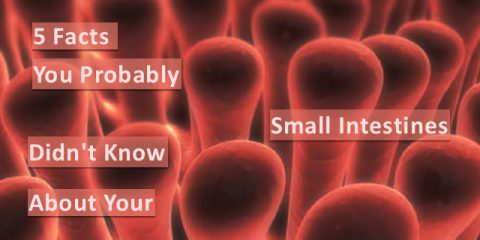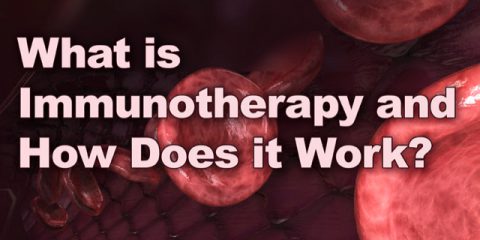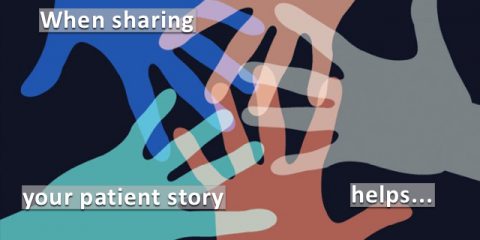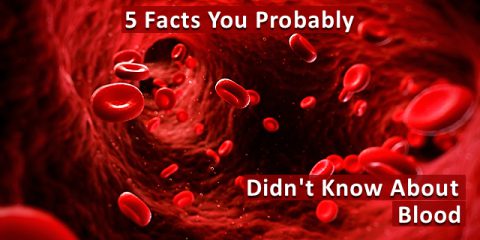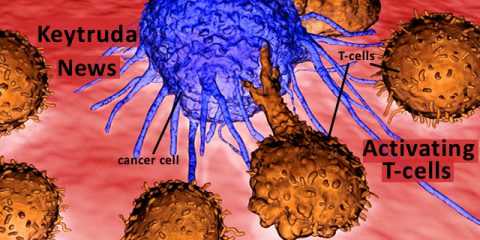This summer has been a challenge after a family member with celiac disease had a gluten exposure (Click here to read more about celiac disease). Gluten damages the small intestine villi (see 5 Facts You Probably Didn’t Know About Your Small Intestines), which are essential for nutrition absorption. For over a month, gastrointestinal pain, vomiting...
Read More5 Facts You Probably Didn’t Know About Your Small Intestines
Here’s dinner! Open your mouth and say, “Yum!” Digestion starts in your mouth. Teeth, tongue and salivary glands are instrumental in the first step in digestion: tearing food into smaller pieces and providing moisture to move those pieces down the esophagus. But what happens next? Let’s find out. Digestion: The Big Picture Think...
Read MoreInfographic on Cancer Immunotherapy
Last summer we provided a series of posts on oncology basics. Oncology Basics: Preparing for ASCO covered some of the history of oncology. In Understanding Cells, we reviewed what is newly understood about cells–it’s way beyond what you learned in high school biology. DNA with lots of animated videos also explained some of the basics...
Read MoreWhy Is Asking For Help So Hard?
Asking for help has been really bothering me lately… Before writing this post, I read a lot about the topic. It seems that the experts agree that it is a strength to ask for help. They actively promote asking for help. But that just felt wrong to me. I’d been advocating for months for a loved one and getting absolutely nowhere. Maybe it was...
Read MoreGuest Post: An Open Letter To Healthcare Providers
By Stephanie Zimmerman, RN, MSN Dear Healthcare Providers, Although professionally, I am a former pediatric oncology nurse practitioner, I write this letter as an individual who lives with the long-lasting impact of late effects stemming from the successful treatment of Ewing’s Sarcoma as a child in the late 1970’s. I write because I am fortunate to be...
Read MoreColon Cancer Patient Advocate Shares Her Story
In April, the American Association for Cancer Research (AACR) held a free education event on cancer called Progress and Promise Against Cancer in Washington, D.C. Surrounded by experts in cancer research, Kim Hall Jackson shared her patient story. One evening in 2008, Jackson, an event planner, was running the mayor’s inaugural event in...
Read More5 Facts You Probably Didn’t Know About Your Blood
Blood, your own private sea, moves through your body because of your powerful, pumping heart. Through blood, every cell in your body communicates with one another. What do you know about this special fluid? Your blood is not just fluid. There are four components to your blood: plasma, red blood cells, white blood cells and platelets. The liquid...
Read MoreGuest Post: Hodgkin’s Lymphoma and My Stem Cell Transplant Experience
“I am 24 years old. Last year on January 15th 2016, I was diagnosed with Stage 2A Classical Nodular Sclerosing Hodgkin’s Lymphoma. I had 12 cycles of ABVD chemotherapy over 6 months and went into complete remission on August 8th, 2016. A few weeks before my wedding, on November 4th 2016 I had my first follow up CT scan which showed enlarged...
Read MoreKnowledge is Power: Help For People With Hodgkin’s Lymphoma
“Family and friends can be great sources of support but truth be told, no one can ever really know what you are going through other than those who have been there themselves….” ~Rachele Chaar Ghosn For Rachele Chaar Ghosn, a 24-year-old woman with Hodgkin’s Lymphoma, finding others going through treatment for Hodgkins was paramount....
Read MoreChocolate, Need I Say More…
Recently published, another research article about the benefits of chocolate! In this case, the Danish are following a large group of people, ages 50 to 64 over a number of years to find out how their consumption of chocolate affects their health. In this study, they looked at atrial fibrillation, a condition in which the upper chambers of your heart...
Read MoreOver 13 Facts About Bones-Medivizor
We don’t think about them but our bones give our bodies, our internal organs and our muscles, structure and protection. Your skeleton is the birthplace of blood cells. And it store minerals that are essential to life. What Mom Never Told You About Osteoporosis! is a post that describes the composition of bones. Here is a cross section of a...
Read MoreQuick Guide: Understanding the Importance of the FDA’s Keytruda Approval
In July 2015, we published a post called Patients Included In Research: Studying Cancer by Mutation Not Organ. In that post, we shared the goal that cancers would be treated not by the site of origin, but rather by their genetic features. Achieving this goal is closer than you think! This week the FDA announced accelerated approval** of a...
Read More

